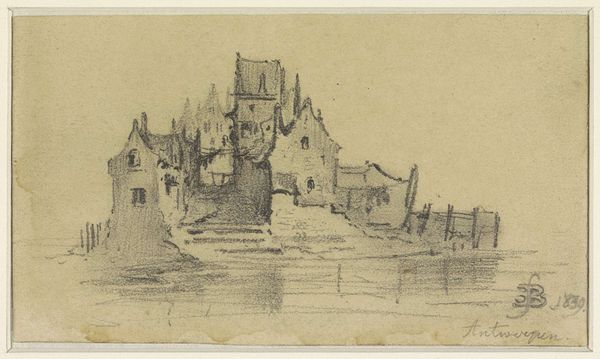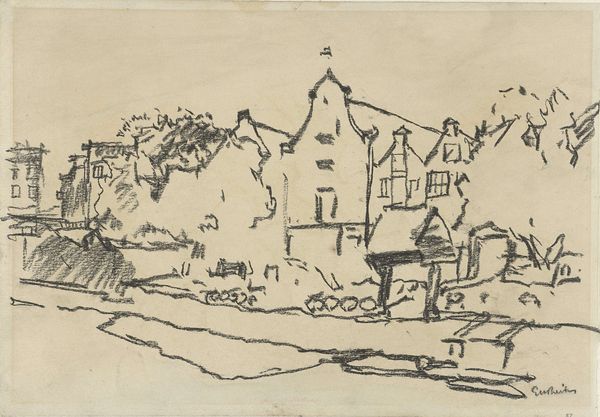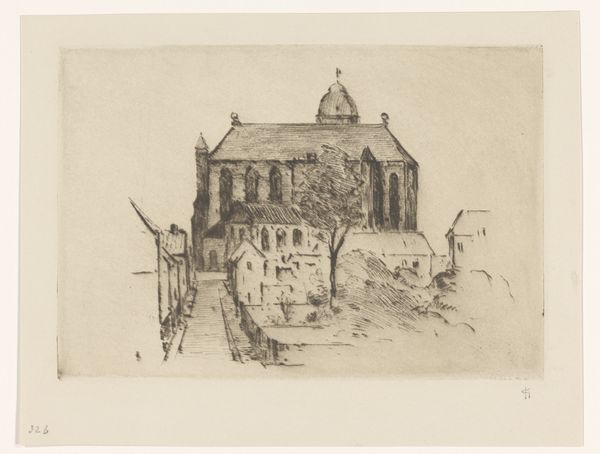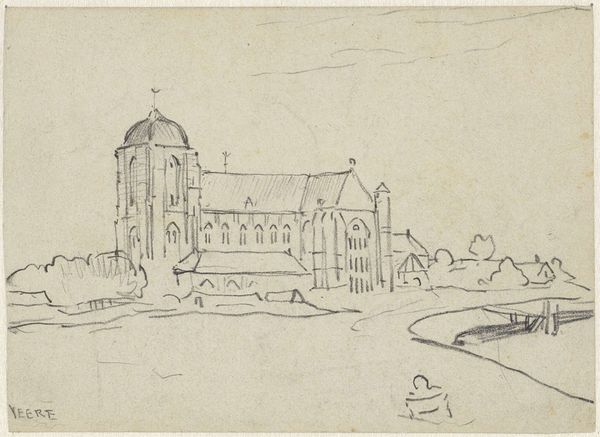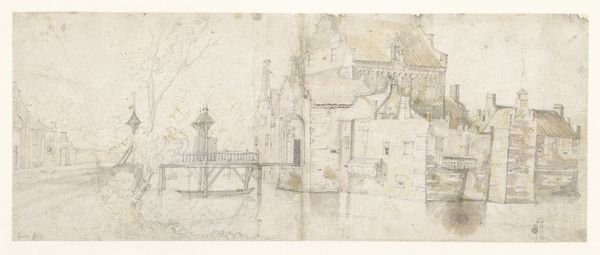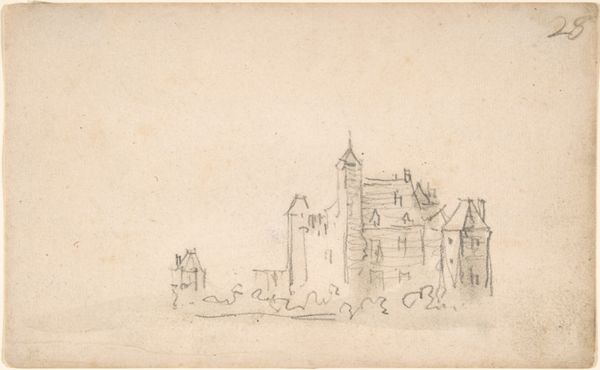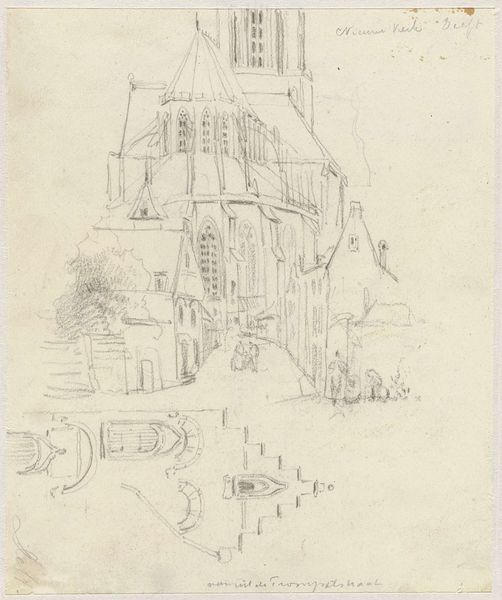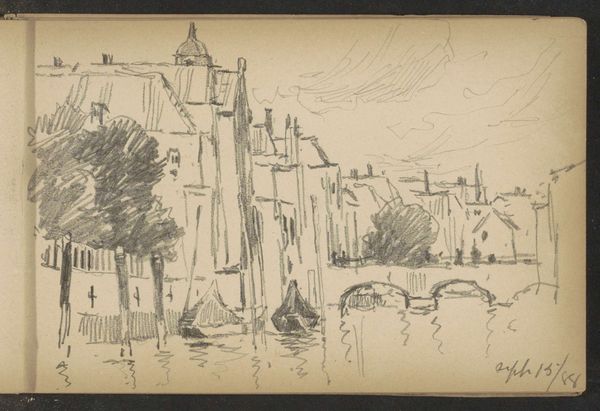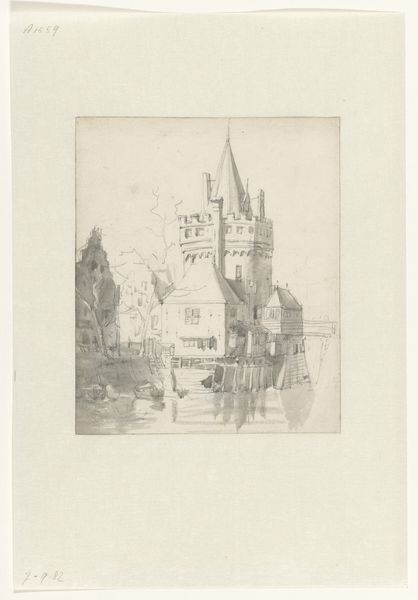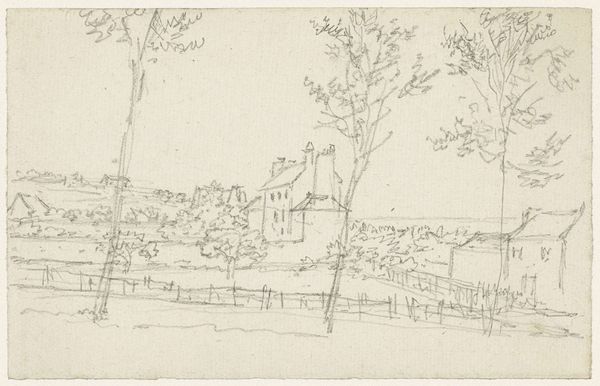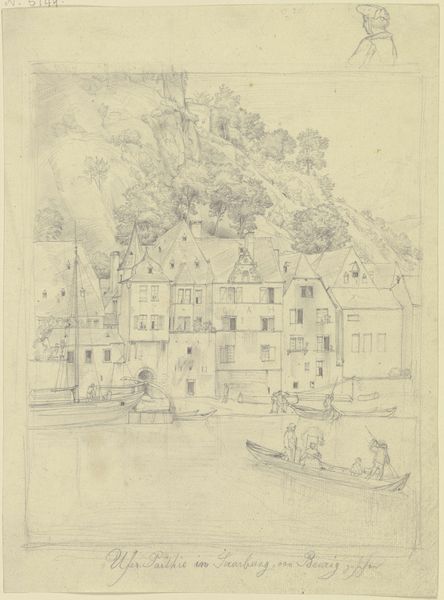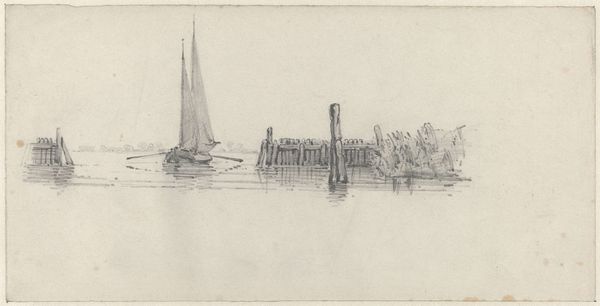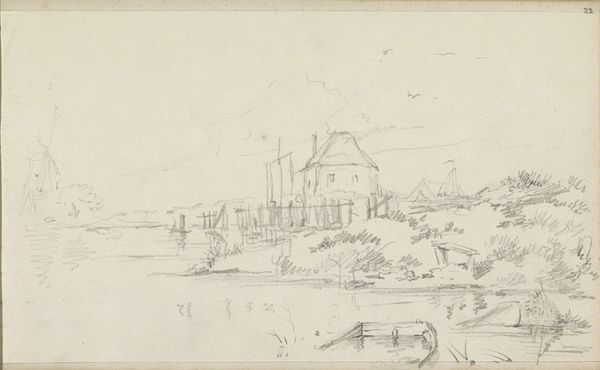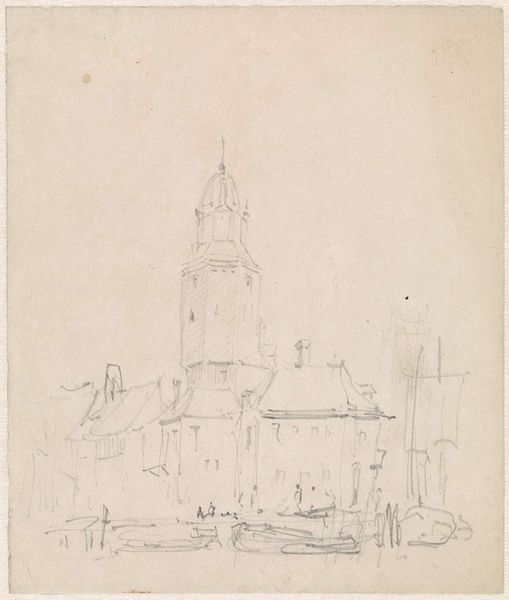
drawing, pencil
#
drawing
#
quirky sketch
#
pen sketch
#
incomplete sketchy
#
landscape
#
personal sketchbook
#
sketchwork
#
ink drawing experimentation
#
pen-ink sketch
#
pencil
#
sketchbook drawing
#
cityscape
#
storyboard and sketchbook work
#
sketchbook art
#
realism
Dimensions: height 115 mm, width 174 mm
Copyright: Rijks Museum: Open Domain
Adolf le Comte made this pencil drawing, titled "View of Bruges," sometime between the late 19th and early 20th centuries. It's a quickly rendered sketch, depicting the city's architecture reflected in the canal. Looking at this, we might think about the art academies of Europe at this time, and the way they promoted sketching as a way to study and record the world. We might also ask, what was the particular appeal of Bruges for artists? Its medieval architecture and canals offered a picturesque escape from the industrialized world. The city was a popular destination for tourists and artists alike. Le Comte's sketch flattens the image. He emphasizes line over volume and texture over detail, which gives the drawing a sense of immediacy. To understand this work more fully, we would want to know about Le Comte's training, his social circle, and the artistic conventions of his time. Art doesn't exist in a vacuum; it's a product of its social and institutional context.
Comments
No comments
Be the first to comment and join the conversation on the ultimate creative platform.
